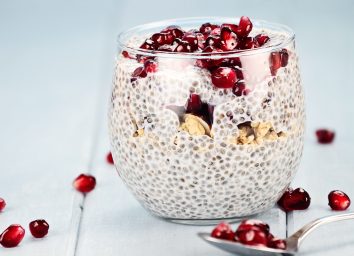What Happens to Your Body When You Eat Chia Seeds
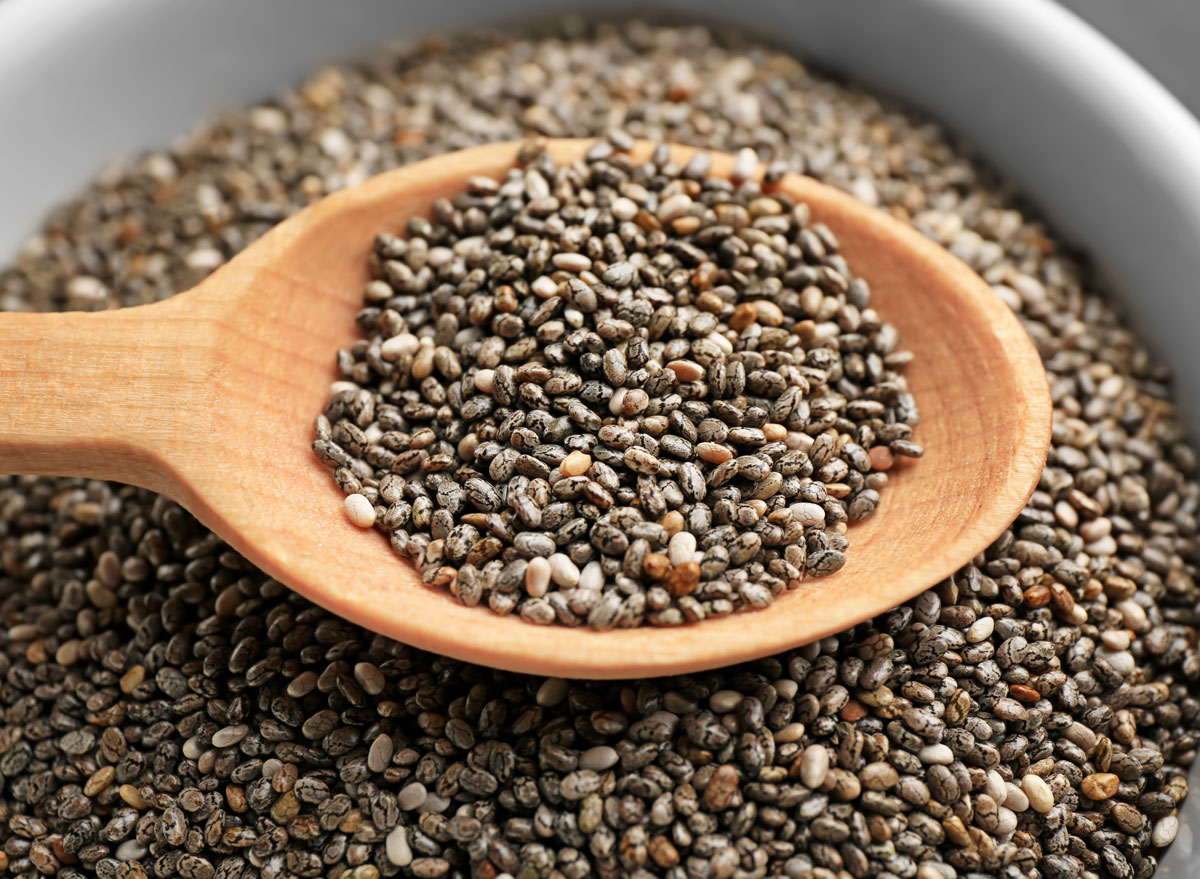
Sometimes the truth hurts but it's necessary for personal growth, right? That's why we're here to say, it's time to stop skimping on chia seeds. These tiny black seeds are loaded with essential nutrients, antioxidants, and key macronutrients that all help you to stay healthy and full of energy. In the event that you've never made any dishes with chia seeds before or are just hesitant to give them a try, we wanted to give you a few reasons to help kickstart your journey—and why you should eat chia seeds on a regular basis.
Trust us, you won't turn your back on chia seeds again. And after, don't forget to read 100 Easiest Recipes You Can Make for additional meal prep inspiration!
You'll become more regular.
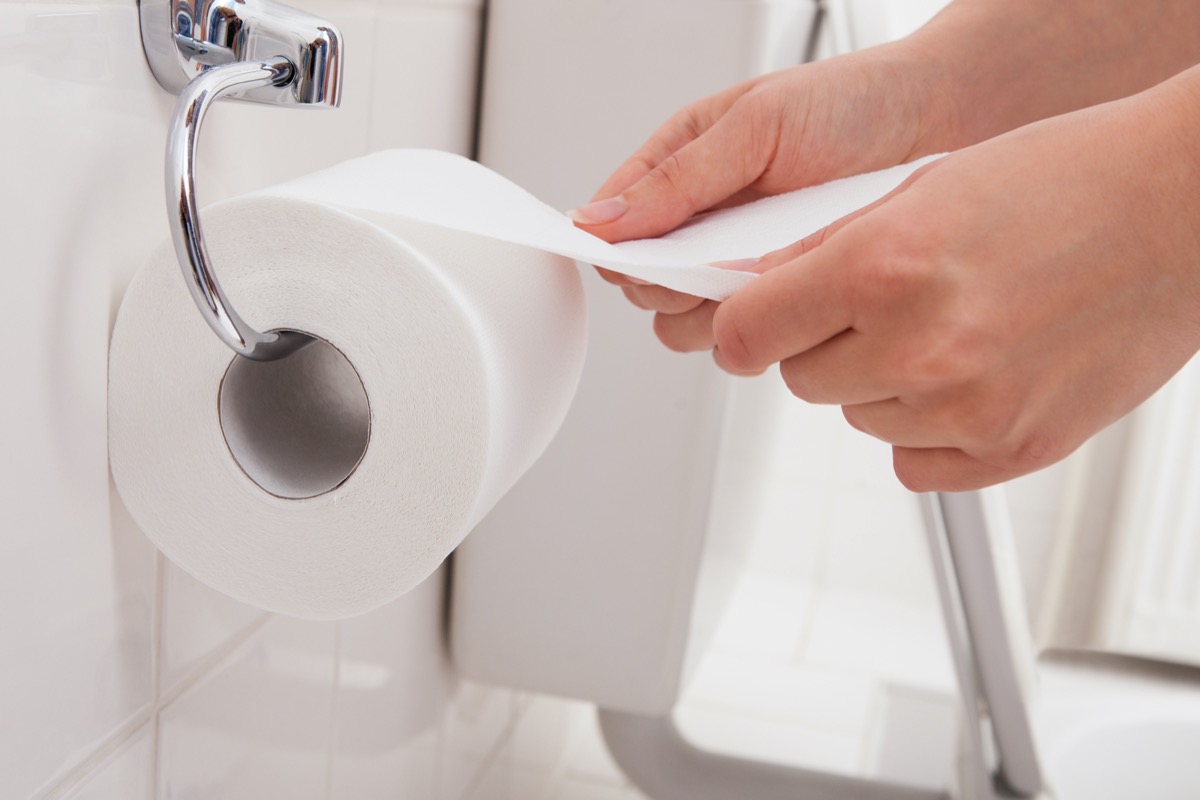
Just one ounce (or about 28 grams) of chia seeds contains about 11 grams of fiber. For context, women ages 50 and younger should aim to eat about 25 grams of fiber each day, whereas men in that same age range require about 38 grams. A one-ounce serving of chia seeds (which could be added to your overnight oats or your superfoods-packed smoothie) can help you fulfill one-half or one-third of your daily needs.
Consuming high-fiber foods can help you go more regularly while also allowing you to spend less time in the bathroom each trip, and can even help you lose weight! Here's why fiber is considered The #1 Thing To Eat Every Day To Lose Weight For Good.
You may also feel more bloated.

While you'd think the fiber content in these tiny little seeds would help combat the bloat, some people may experience some GI discomfort after eating a serving of chia seeds. As Tracy Lockwood, RD told Well + Good, it has to do with the way you're eating them.
"In order for the chia seed to move through the gut, it draws water from the intestine area, working like a sponge," says Lockwood. "They also expand in your stomach, so both of those things can cause a lot of bloating."
The solution? Soak them in warm water for about five to 10 minutes before eating them. This way, they will have already expanded before entering your gut. Lockwood told the outlet that you should add 9 teaspoons of water to every teaspoon of chia seeds. Or make this Customizable Overnight Chia Pudding Recipe.
You may lose weight.
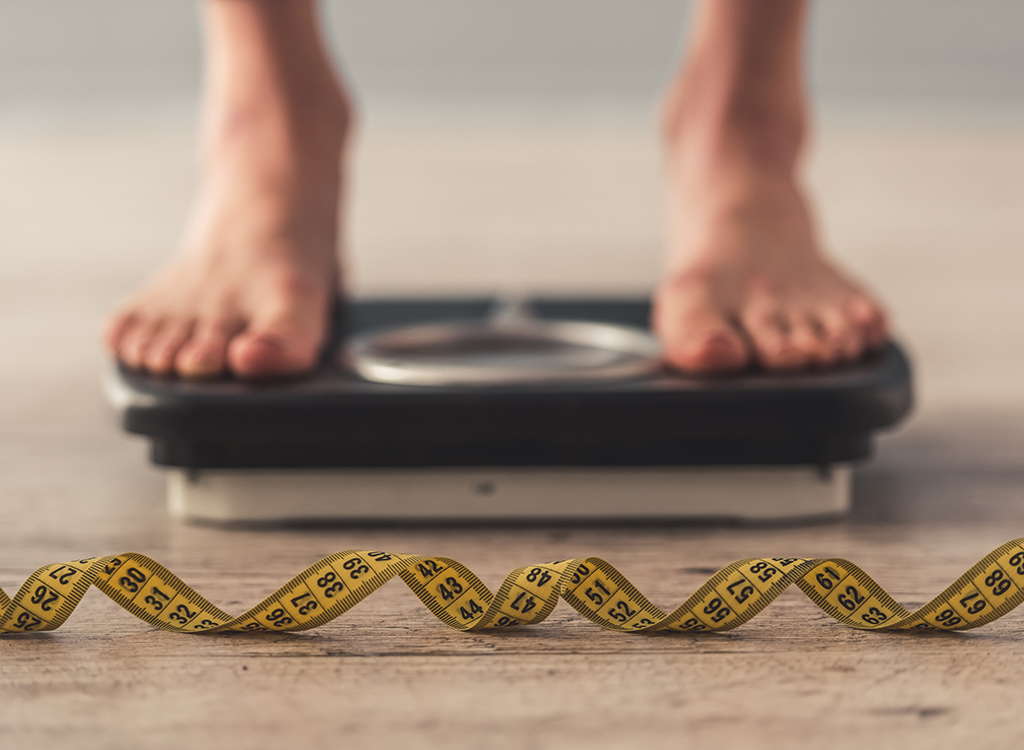
Not only are chia seeds high in fiber, but they're also high in protein and both of which are known to boost satiety, meaning you'll feel fuller for longer. For example, high protein intake has been shown to decrease appetite as well as obsessive thoughts about food. So, regular consumption of chia seeds, in addition to other protein-rich, plant-based sources, could curb your appetite and may lead to weight loss.
Get even more healthy tips straight to your inbox by signing up for our newsletter!
You could lower your risk of heart disease.

The type of fiber that's most prominent in chia seeds is soluble, which is what gives it that gel-like texture once the seeds soak in water. This type of fiber may also help to lower harmful cholesterol (known as LDL) levels, which could also reduce your risk of developing heart disease. The omega-3 fatty acids in chia seeds may also have a beneficial effect on heart health, by reducing inflammation to preventing blood clots.
They may stabilize blood sugar levels.
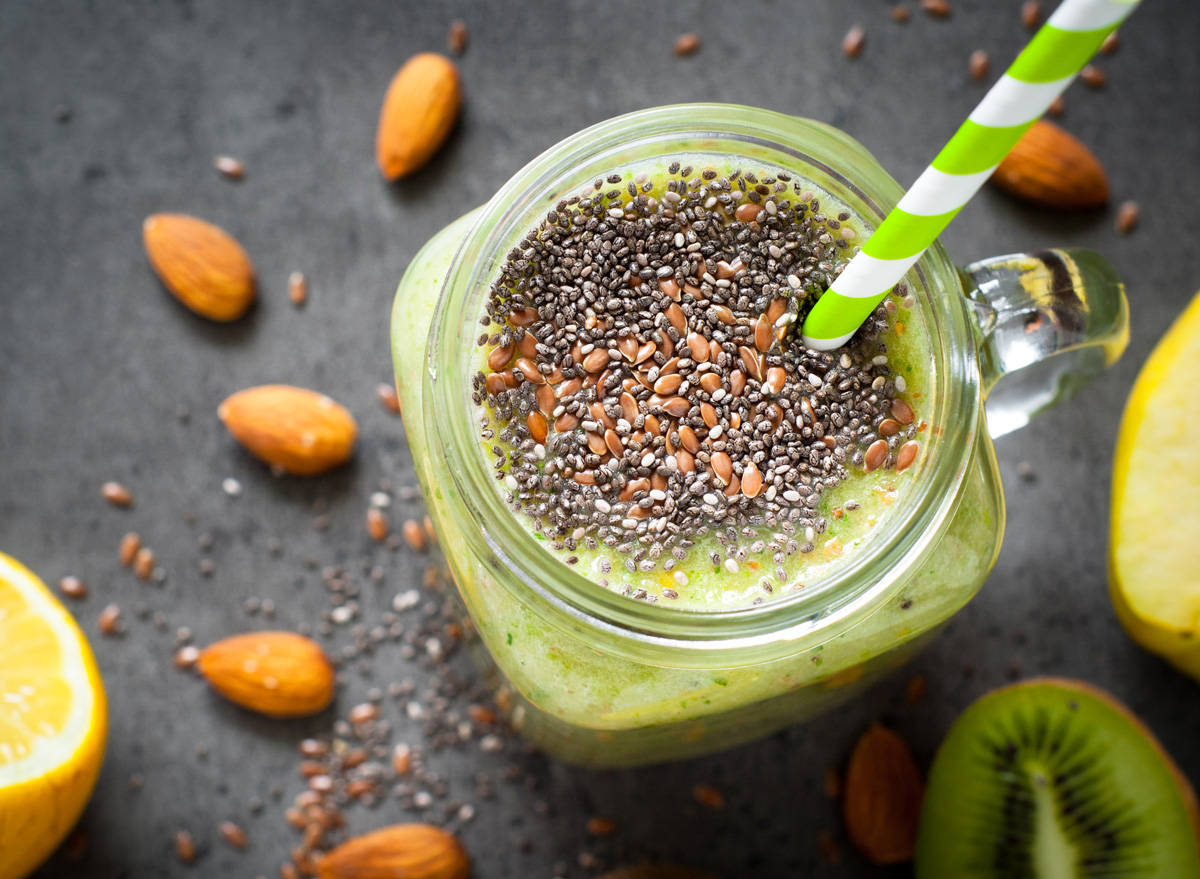
If you have diabetes, chia seeds may be especially important to consume on a regular basis, as they've been shown to improve insulin sensitivity and help control blood glucose (sugar) levels.
"Soluble fiber slows down digestion, keeping you fuller longer and balances blood sugar," Sydney Greene, MS, RDN said in an Eat This, Not That! article on soluble fiber.
For more, be sure to check out 7 Weight Loss Tips That Lower Your Diabetes Risk.
